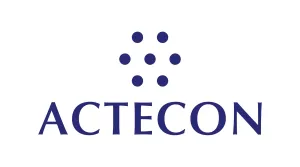INTRODUCTION
On 3 October 2018, the Plenary Session of Tax Law Divisions of the Turkish Council of State issued its judgment reversing two decisions of the 7th Circuit of the Council of State ("7th Circuit")1, which annulled the communiqué of the Turkish Ministry of Trade ("Turkish Ministry") on the imposition of anti-dumping measures on certain US-originating kraft papers.
Having said that there had only been few known cases where the interested parties applied for a judicial review of the Turkish Ministry's evaluations, both decisions may be considered as a landmark case for Turkish Ministry's analysis and findings in its future anti-dumping investigations. This article only provides an overview of the case concerned and does not stress any procedural issues which may be deemed questionable (e.g. pendency and consolidation of the cases).
Outline of the Cases and Analyses Contained Therein
Dumping Investigations
In July 2014, the Turkish Ministry announced its decision to initiate a dumping investigation with regard to the imports of certain kraft papers originating in the US (listed under the CN Codes 4804.11.11.10.00, 4804.11.15.10.00, 4804.11.90.10.00) and completed its investigation within a year (i.e. on 14 July 2016) as set out under the Turkish anti-dumping legislation.
According to the Turkish Ministry's findings which also entail evaluation of all information provided by the cooperating interested parties2;
- the investigation of dumping covered the period between 1 July 2013 and 30 June 2014, and the investigation of injury between 1 July 2011 and 30 June 2014;
- individual dumping margin calculations were conducted for International Paper Company and Rock-Tenn CP LLC (repectively 9.43%, 15.06%), and Rock-Tenn CP LLC's objection against the adjustments used by the case-handler in teh calculation of its dumping margin was also accepted/revised by the Turkish Ministry;
- there was an increase in import of the subject product from the US in absolute terms (approx. by 29%) during the period of investigation;
- the import of the subject product from the US represented 68% of the total import in the period between 1 July 2011 and 30 June 2012, and this increased to 74% between 1 July 2013 and 30 June 2014, whereas the share of those imports in terms of the consumption decreased by 3% during the period of injury investigation;
- unlike the general analysis in its final disclosure, the Turkish Ministry made a company-specific and product type based injury evaluations in its decision and resolved that the prices of the domestic sales of the domestic industry were negatively affected due to the price suppression and price undercutting caused by the import of the subject product from the US;
- owing to the aggressive approach adopted by the domestic industry, its production quantity, domestic sales, and domestic market share increased during the period of investigation, however, the theoretical capacity remained idle at a significant level and its investments, total assets, equity, and net profitability decreased during the period of injury investigation;
- although there had been an upward trend in domestic industry's production, sales, and profitability due to the base effect, sufficient evidence on the injury existed;
- the increase in the imports from the US coincided with the injury of the domestic industry.
Accordingly, in July 2015, the anti-dumping duties were imposed at the following rate: 9.43% for imports from International Paper Company, 15.06% for imports from Rock-Tenn CP LLP, and 19.96% for imports from other US companies.
In May 2016, the Turkish Ministry re-opened the investigation on the grounds that the duties were being circumvented through lowering the prices of the subject products. As a result of the re-opened investigation, in 2017, (i) the scope of the products subject to duty was broadened, (ii) International Paper Company's duty increased to 12.24% of the CIF value3 and (iii) rest of the previously set duties remained as is.
Judicial Review
Following the Ministry's decision of 2015, the Association of Turkish Corrugated Board Manufacturers and an importer of the subject product have brought the case before the 7th Circuit and requested that the concerned decision be annulled.
The 7th Circuit annulled the Turkish Ministry's decision dated 20154 on the grounds that there was no concrete and sufficient evaluation regarding injury and causation5. Accordingly, the court emphasized the following:
"In order imports to cause injury to the sector concerned, dumped imports must have increased significantly, have a substantial impact on the prices of the domestic industry and the economic indicators of the domestic industry must follow a negative course. This injury examination must be based on concrete evidence and volume of the imports and impact of those imports on the imports of the like products in domestic market must be evaluated. In this evaluation, factors such as sales, profits, production, market share, productivity, investment revenues and capacity utilization rate, actual and potential decrease, growth and ability to enlarge investment must be revealed. The factors causing injury other than the dumped imports must be revealed by carrying out an analysis. Without carrying out this analysis, the whole injury cannot be attributed to the imports. It is again necessary to establish causal link between caused injury and unfair competition in imports and such link must be explained concretely and sufficiently. As a consequence, since the above conditions were not met in the present case, the concerned Communiqué is unlawful."
Following the annulment of the Turkish Ministry's above-mentioned decision and implicitly its decision in 20176, the collection of the anti-dumping duties did not take place.
However, the appellate court (i.e. the Plenary Session of Tax Law Divisions of the Turkish Council of State) reversed the 7th Circuit's concerned decisions highlighting the strict standard of proof in anti-dumping investigations.7 It would not be wrong to argue that the appellate court's overriding decision entails limited grounds and bases on the Turkish Ministry's arguments. Another noteworthy point is that all of the decisions referred above has been taken by majority vote, but the dissenting opinions do not also include detailed analysis. As a result of the reversal decisions, the anti-dumping duties have started to be collected again.
Remarks
There has only been a small number of cases where the Turkish Ministry's decisions in anti-dumping investigations were subject to judicial review. This is questionably because of the costliness and slowness of the judicial procedures. Therefore, the 7th Circuit's decision that annulled the Turkish Ministry's communiqué imposing anti-dumping duties against the US-originating imports may be deemed as a signal for all parties of a dumping investigation (including the Turkish Ministry) to thoroughly evaluate the conditions for the adoption of an anti-dumping measure. In other words, these cases are of importance as it brings precision to the burden and level of evidence in anti-dumping proceedings. Furthermore, it also supports that the Turkish Ministry's evaluations may technically be reviewed by the court. Eventually, the appellate court's overriding decisions show that the Turkish Ministry's findings would still have a critical role in the judicial review as well.
Footnotes
1. 7th Circuit's decisions dated 28.12.2017 and numbered 2015/6922 E., 2017/6614 K. & dated 28.12.2017 and numbered 2015/6923 E., 2017/6615 K.
2. Some of the US manufacturers (namely International Paper Company and Rock-Tenn CP LLC) and the US traders (namely Avortex Limited, Eagle Paper International, Inc., G.A. Paper International Inc., International Forest Products LLC, Korab International AB and Perichem Trading Inc.) were deemed cooperating whereas KPAQ Industries LLC was considered as non-cooperating due to the essential deficiencies in its responses to the questionnaire. Furthermore, American Forest & Paper Association, World Containerboard Organisation, and Association of Turkish Corrugated Board Manufacturers submitted their comments on the investigation.
3. CN codes of the subject products are 4804.11.11.10.00, 4804.11.15.10.00, 4804.11.90.10.11, and 4804.11.90.10.12.
4. In the action brought by the Association of Turkish Corrugated Board Manufacturers, the 7th Circuit wholly annulled the Turkish Ministry's communiqué setting out the concerned anti-dumping duties whereas in the action brought by an importer, the decision was partly annulled (i.e. only with regard to the anti-dumping duty imposed for imports from International Paper Company).
5. 7th Circuit's decisions dated 28.12.2017 and numbered 2015/6922 E., 2017/6614 K.; dated 28.12.2017 and numbered 2015/6923 E., 2017/6615 K.
6. This is due to the fact that the re-opened investigation and the decision thereof were based on the Ministry's decision dated 2015.
7. Plenary Session of Tax Law Divisions of the Turkish Council of States decisions dated 03.10.2018 and numbered 2018/700 E., 2018/575 K.; dated 03.10.2018 and numbered 2018/770 E., 2018/576 K.
The content of this article is intended to provide a general guide to the subject matter. Specialist advice should be sought about your specific circumstances.


